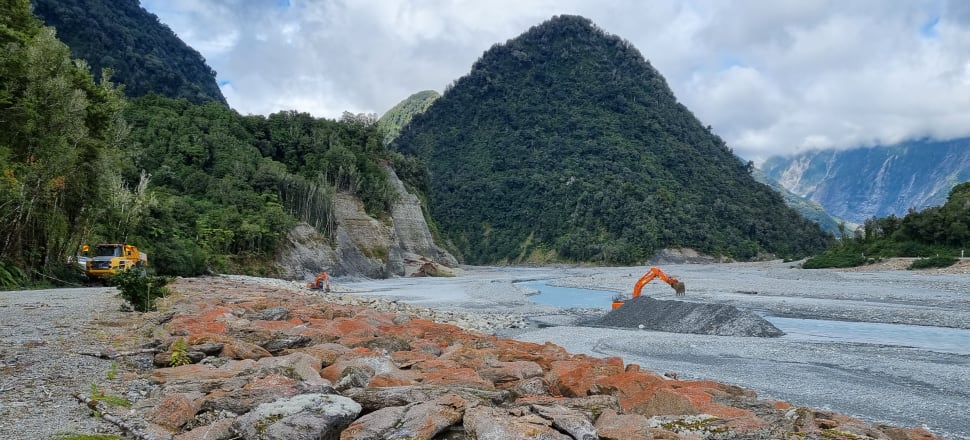
With the exception of a resilient few females, West Coast local body politics is a macho men’s club, reports Lois Williams.
After the 2019 council elections, women made up 42 percent of council and local board members around the country and Local Government New Zealand was exultant.
“It debunks the narrative that councils are the sole preserve of the male, pale and stale,” it pronounced.
But the overall percentage conceals the fact that in many parts of the country, women still occupy a tiny minority of seats around council tables.
On the West Coast, where (as usual) few women are standing for election, Newsroom spoke to three who chose to join the “boys’ club” and one who’s had enough.
Surveying the scene
As a senior cadastral surveyor in her mid-30s, Westport’s Laura Coll McLaughlin is used to speaking up in male-dominated circles.
But as one of two women on the West Coast Regional Council, she developed an interesting habit of prefacing her often searching questions with, “I’m sorry, but can I just ask ... .”
Or, “Sorry, but I just have one more question …. .”
She hadn’t noticed she was doing that, she says.
She had noticed, however, that quite often she would be interrupted, talked over or the conversation would be somehow “derailed” during council meetings involving the public, such as consultation sessions.
That tended not to happen when male councillors were making a point, she observed.
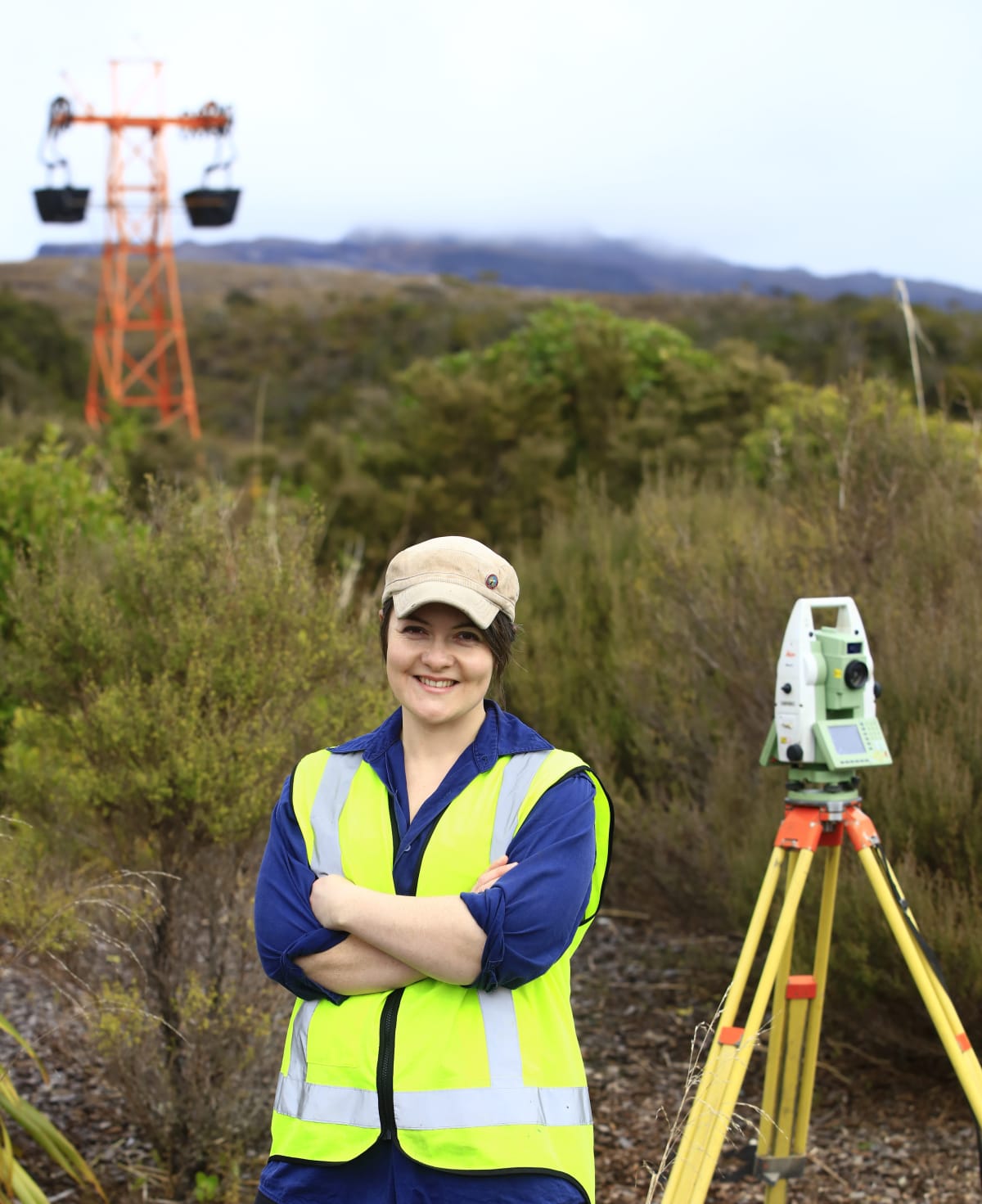
But that’s not why she’s stepping down after one term.
“I found I couldn’t juggle being a mum to a six-year-old, plus my professional job, plus the council work,” she says.
“Three priorities was one too many. Motherhood’s for life and I need the job to pay the bills so the council work has to go.”
There was also the stress of online abuse, and hints of violence, causing her to shut down her council Facebook page for a time.
Notably, it’s been a fraught few years for the West Coast Regional Council.
It’s overseen the writing of a controversial new district plan, dealt with an attempted leadership coup, seen the shock resignation of a new chief executive, borne staff losses and toiled under a heavy workload caused by environmental reforms and other law changes.
Coll McLaughlin says she might re-enter local politics in a few years when the pressure’s off a bit.
By then, local government reform may see councillors paid enough to allow women to quit their day jobs, she says.
Woman alone
Coll McLaughlin’s exit means councillor Debra Magner could be the lone woman at the table after the election - apart from the chief executive.
Just one other woman is standing, but as a newcomer to the Coast, with strong environmental leanings, her chances of election are not high.
The highest-polling candidate in 2019 was the council’s chair, Allan Birchfield, a goldminer, snappy dresser, Trump fan and noted climate-change sceptic who spent not a cent on advertising.
Magner and Coll McLaughlin were among the group who tried to depose him two years ago.
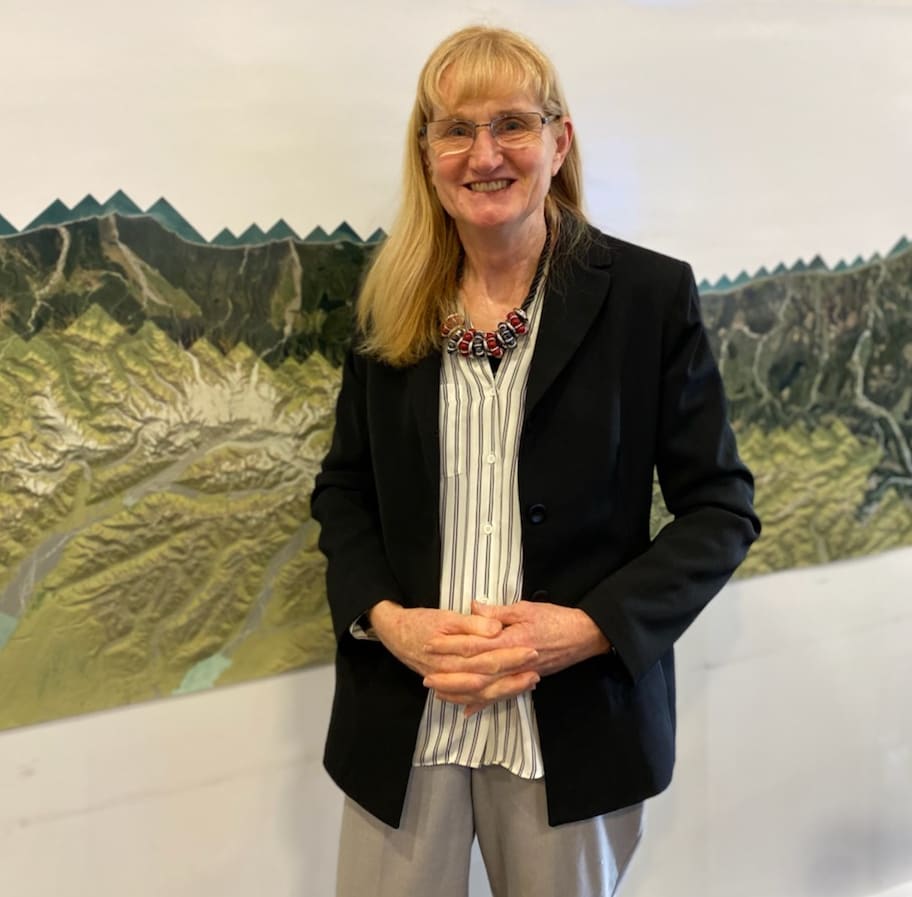
The 58-year-old Hokitika dairy farmer says the lines have been quietly drawn ever since.
“It’s a boys’ club, to be honest, and it’s been a battle. I think that affected Laura more than me - I’m older and conflict doesn’t bother me. But I’ll miss her support a lot if I get back in.”
Magner, who chairs the council’s audit and risk committee, is up against two Westland candidates enlisted by Birchfield.
“He told us he’d do this … Allan and his supporters want control of the council and over the staff, and they can be quite intimidating and dismissive.”
But she won’t be backing down, Magner says.
“I want to stay in to support [chief executive] Heather Mabin because she will be under pressure. These guys really don’t like being told what they can and can’t do by a woman.”
Mabin - the council’s first woman CEO - replaced chief executive Vin Smith who resigned just seven months into the job after a clash with Birchfield over resource consents and rates rises.
In the chair’s view, he was taking common sense action to sort out practical problems.
But in the view of half his councillors and Smith, he was crossing the line between governance and management.
The coup was called off only after the council’s iwi partners mediated on Birchfield’s behalf.
Mabin says there’s a persistent belief among some West Coast councillors that they should have a say in operational matters.
“It’s been an aspect of this council - previous CEOs have noted it in their records. The fact is that governance does not have the ability to do that, to intervene. Council employs me and I employ the rest of the staff.”
Like Magner, similar-aged Mabin is unfazed by potential conflict.
“It’s something we manage. The chair was opposed to our vaccination policy, for instance – but that was a decision for the executive team and we made it. I’m more stressed by being away from my family in the North Island.”
No comment
Newsroom invited Birchfield to respond to the points raised by all three women.
He’s confirmed that he supported the nominations of the two candidates standing against Magner.
But he declined to comment on the rest of their concerns.
“I don’t want to get mixed up in all that. We’re having an election; we’ll let the voters decide.”
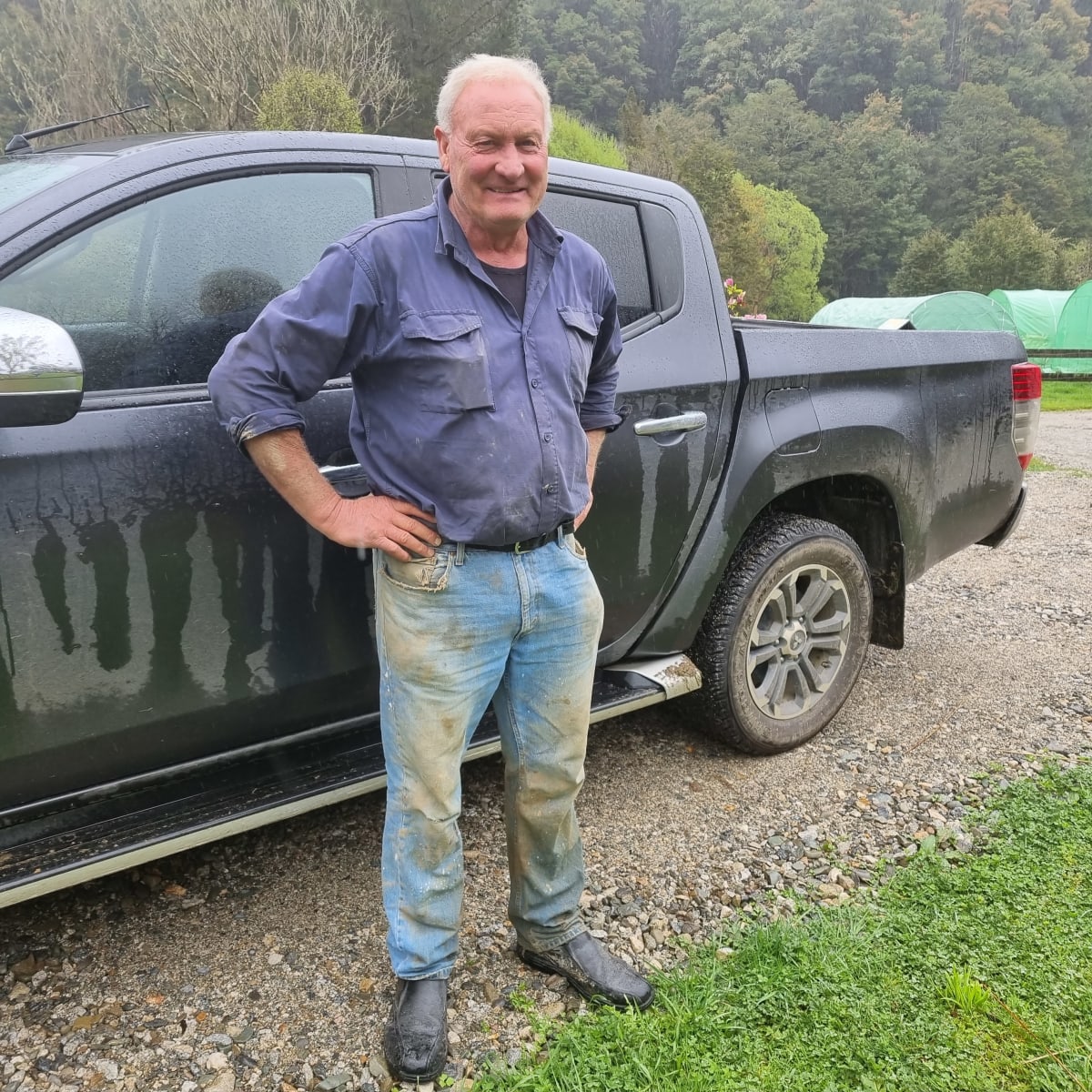
But factions and internal conflicts aside, could it be that the council’s core business, moving large rocks around the region, simply doesn’t interest most women?
Coll McLaughlin says there’s more to the role than building flood walls and keeping rivers in check.
“We’re there for the sustainable management of the environment and resources, but on the coast our natural hazards mean we use a lot of engineers and diggers and quarries, all quite male-dominated areas.
“So it’s true men with those skills tend to go for this council, and some women may think it’s not for them. But that’s incorrect.”
While the regional council could be down to one woman councillor next week, Grey District Mayor Tania Gibson is hoping her numbers will increase.
“We’ve had just one woman councillor this term and there are just two standing this time apart from me.”
She suspects many West Coast women just don’t realise what they’re capable of.
“I didn’t realise myself until I was voted in. I was a business owner and I’d had three years as a councillor but I still felt unready.
“It’s partly a confidence thing and there’s a lot of detailed technical work like long-term plans, but there’s no reason women can’t be good at tha. I’ve learned heaps.”
In contrast, some first-time male candidates seem very confident indeed, she says.
“Some of them are in for a rude shock if they get in - the things they’re promising to do all by themselves.”
Since 2019, Gibson has been one of just two women at the council table.
There’s no strong tradition of women putting themselves forward on the Coast and the toxic impact of social media could well be a new deterrent, she says.
Forthrightly gracious
When she was elected three years ago, the former hairdresser was an easy target for the trolls and snaky comments, from the amusingly retro - “Why don’t you step down and let a strong man do the job?” - to possibly envious demands that she cut her hair.
But the strong men of Facebook failed to front up come election time and Gibson - blonde mane intact - is set to sail back into office.
(Her only opponent is the bewildering Richard Osmaston of the Money Free Party who’s running for mayor in six districts and advising electors not to vote for him.)
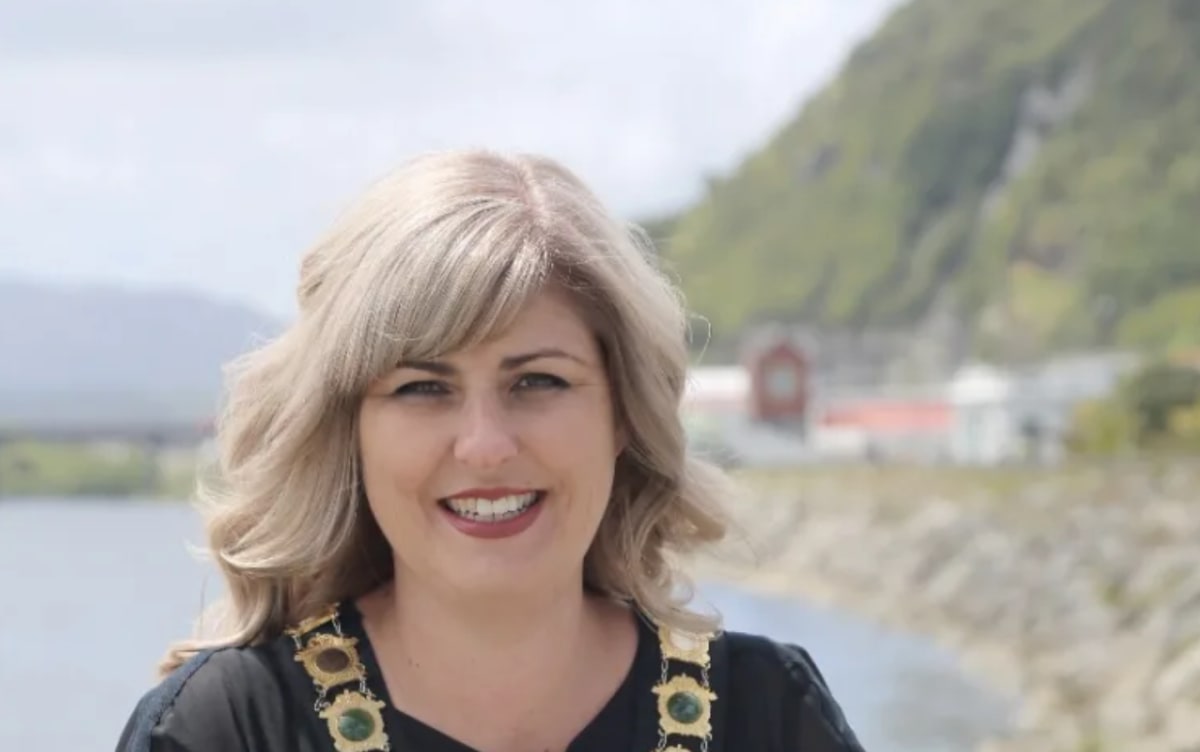
At the final meeting of this council’s term, Gibson’s (male) councillors told her in forthright West Coast style that she’d made a good fist of the job.
“They said, ‘We thought it would be a bloody shambles when you got in, but you proved us wrong.’ It was just lovely.”
Only two other women are standing for the Grey District Council in these elections and Gibson is hoping at least one of them gets in.
“Otherwise, I’m going to be lonely.”
Made with the support of the Public Interest Journalism Fund








